Each spring, The Daily’s Editorial Board interviews and endorses candidates for ASSU Undergraduate Senate and Executive. Here are the students who we believe most deserve your vote.
UNDERGRADUATE SENATE
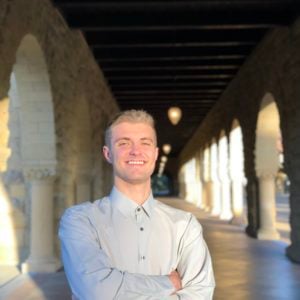
Martin Altenberg
Class of 2021
Major: Electrical engineering
Platform highlights: Undergraduate Activities Directory; support for the disability community; interest in educating new members and continuing the work from previous senators and Exec.
Why we chose him: Compared to his competition, Martin has unparalleled experience and connections within the ASSU undergraduate Senate — this much is apparent when half of the other candidates referenced his work or his collaboration in their own endorsement interviews. In his interview, Martin highlighted his previous Senate work in creating an Undergraduate Activities Directory, which attempts to create more accessibility and resources for activities on campus. In addition to his success with the directory, we were impressed by his deep institutional knowledge and dedication toward educating both returning and new senators on the ins and outs of ASSU. Martin is in constant collaboration with other senators to further the goals of their platforms as well as to work on his own. We think this speaks well to his dedication to the Senate above his own interests. Based on his experience and networking abilities, Martin’s commitment to continuity and community would serve the Senate well in helping it create more effective long-term change.

Veronica Ayala
Class of 2022
Major: Undeclared
Platform highlights: Advocacy for ending police intervention in mental health crises, support for FLI issues and community centers, greater transparency from the ASSU
Why we chose her: Throughout her interview, Veronica displayed both a passion for specific issues and a balanced understanding of the role of Senate as a whole. Veronica spoke thoughtfully about her vision to capitalize on momentum generated by present mental health activism to push for change in her senatorship. Additionally, she pointed to her own frustrations this past year with accessing basic Senate resources and attending weekly meetings, and hopes to improve transparency, which we agree is easy and important to implement. Her experience working at the FLI office, attending open CAPS meetings and going to Senate this past year all impressed us and convinced us that she is right for the position.
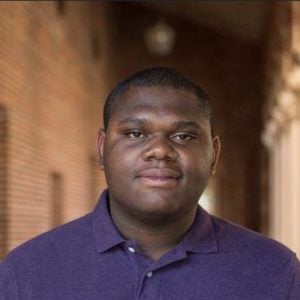
Micheal Brown
Class of 2022
Major: Economics
Platform highlights: Improving participation and diversity in student organizations, improving ASSU Senate accountability to the student body, expanding at-night safety measures and increasing access to mental and sexual health resources, decreasing the barriers of course fees on creative and academic exploration
Why we chose him: Through Micheal Brown’s position as an ex-officio Senate member in the Senate Associate Program, Brown came to understand that the Senate’s real power lay in its purse, and its ability to lend the student body voice to administrative decisions. However, the role also opened Brown’s eyes to its limitations. Unequal senator time commitments and vague decisions that merited more explanation before the student body were issues that Brown has ambitions to fix should he be elected to the Senate. Brown plans to increase accountability by creating a social media account for the Senate to announce its decisions more clearly. If elected, Brown also intends to pursue more serious measures like voting out senators that have not demonstrated the responsibility and commitment required for their role. One of Brown’s ongoing projects through the Senate Associate Program is improving the financial aid experience by making it more accessible to Stanford students. His demonstrated action on these key issues is why we believe Brown will be a valuable addition to the next ASSU Senate.

Mustafa Khan
Class of 2022
Major: Symbolic Systems
Platform highlights: Course fee reductions within individual academic departments; concerns for Bridge Peer Counseling and FLI representation in mental health issues.
Why we chose him: Even though Mustafa is a freshman, he already has an extraordinarily clear and realistic idea of how the Senate actually works. Within that knowledge, Mustafa knows exactly how he can execute his own goals through this governing body in an efficient and effective way. In his interview, Mustafa talked about ensuring that each senator follows this same ideal — that each has a distinct set of individual propositions that are realistic, instead of trying to solve every issue on campus. To this end, Mustafa has highlighted specific changes to create course fee reductions for FLI and non-FLI students in general. His work in this realm has already involved meetings with multiple administrators, with the Financial Aid Office, and with the FLI community. Because Mustafa is already so proactive in helping this specific issue, we are optimistic that his senatorship would help him further realize his platform goals while benefitting multiple communities within the university.
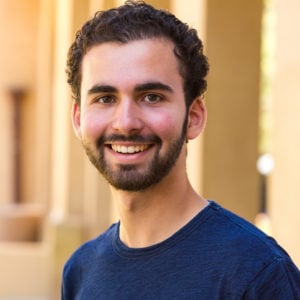
Jonathan Lipman
Class of 2021
Majors: Philosophy and computer science
Platform highlights: Increasing support for CAPS to decrease wait times, reforming ASSU funding policies, banning student course fees
Why we chose him: Jonathan displayed a strong sense of priorities in both his interview and platform, emphasizing his desire to reform the labyrinth of ASSU/SSE funding policies. He currently serves on the Board of Directors for SSE, which gives us confidence that he has the right expertise and knows the right people to execute this task. Furthermore, he had substantive ideas for improving the representation of minority voices, drawn from his experience serving on the Academic Senate Committee on Undergraduate Standards and Policies and with Long-Range Planning. His no-nonsense agenda paired with his experience have us convinced that he can instate meaningful change.
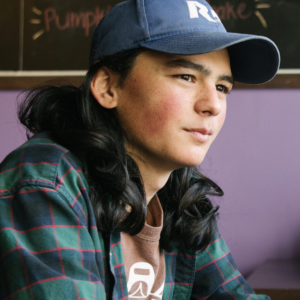
Sam Schimmel
Class of 2022
Majors: Earth systems and political science
Platform highlights: Expanded opportunities for FLI students; making mental health initiatives more student-driven; increasing grant money for a “student experience fund”; streamlining the process for reporting sexual assaults.
Why we picked him: The Daily was thoroughly impressed with Sam’s institutional knowledge and understanding of Stanford’s internal procedures. The fact that he has this awareness as a freshman speaks volumes about his potential to serve as a student leader in the years to come. Sam also has extensive experience working with administrators and politicians, as his mental health initiatives in his home state of Alaska readily reveal. His platform is heavily focused on the well-being of students and we believe that he has the charisma and know-how to forward those goals during his potential tenure as a senator.
GRADUATE STUDENT COUNCIL
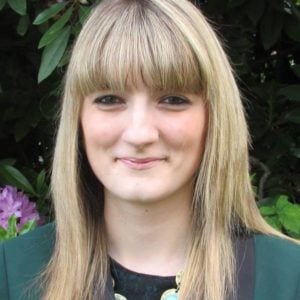
Gabby Badica
Class of 2020
Ph.D. candidate in Division of Literatures, Cultures and Languages
Platform highlights: Combatting grad student isolation, improving affordability for graduate students at Stanford
Why we chose her: Gabby Badica is passionate about fostering more community among graduate students at Stanford. In her current role on the Graduate Student Council, she has doubled the number of social events held for grads, and expanded the funds available for holding such events. Badica has created partnerships with the Stanford Alumni Association, the Graduate Life Office and the Office of the Provost for social event funding. Aside from the grad student social scene, Badica is also concerned with improving grad student affordability and the housing experience. As has become evident through The Daily’s reporting, grad student affordability and housing accommodations are salient issues within the community. Through her position as head community associate for Escondido Village, Badica has helped fellow students find off-campus housing and facilitated communication with Residential Education. As co-chair of the Provost’s Affordability Taskforce, she has also been considering various approaches on making graduate life more affordable. Her experience in these key areas will make her an important member of the Graduate Student Council, especially with the forthcoming opening of the Escondido Village Graduate Residences, when she will continue to be a strong advocate for her community’s interests.
EXECUTIVE
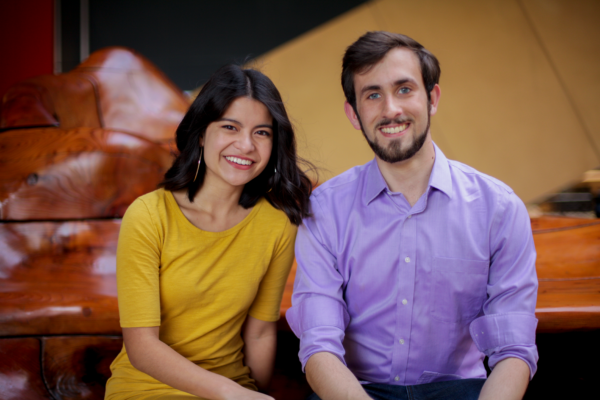
Kimiko Hirota / Bryce Tuttle
Class of 2020 / Class of 2020
Majors: Sociology and Comparative Studies in Race and Ethnicity / Political science
Platform highlights: Increased accessibility of campus mental health services; clearer policies and stronger support for victims of sexual violence and relationship abuse; disability advocacy; support for graduate students and the FLI community; stronger financial stewardship among the ASSU (See their website, http://kimiko-bryce.com, for more detail.)
Why we picked them: Kimiko and Bryce have long-running track records as drivers for greater diversity and inclusion on campus. Collectively, they have chaired numerous successful community organization campaigns, including those advocating for better mental health care, increased funding for community centers and disability equity at Stanford. Together, they have used these campaigns to effect real change. As a freshman, Kimiko led a petition to increase financial support for understaffed and under-resourced community centers, compelling the University to allocate more funding to these centers for the first time since 2008. She is also an active advocate for communities of color, as well as survivors of sexual violence and abuse. Bryce has done pioneering work in disability advocacy as president of disability equity student group Power2ACT and as Disability Co-Lead on the ASSU Executive Cabinet. In these roles, he spearheaded the launch of the Abilities Hub, helped expand Stanford’s Disability Studies curriculum, and has made significant strides toward the potential establishment of a Disability Community Center on campus.
Together, Kimiko and Bryce are a thoughtful and determined pair who present a compelling yet realistic vision for the next ASSU, and carry a robust toolbelt of institutional knowledge as veterans of the student government. Their clear plans of action for the issues highlighted in their platform — including the expansion of mental health services, which is a particularly salient matter within the Stanford community at the moment — are evidence of conscientious and diligent leadership. As they say in their campaign slogan, Stanford won’t change itself. Kimiko and Bryce will bring experience, understanding and vision to the table as empathetic leaders with plans to effect real change in service of the Stanford community at large.
Contact the Vol. 255 Editorial Board at opinions ‘at’ stanforddaily.com.